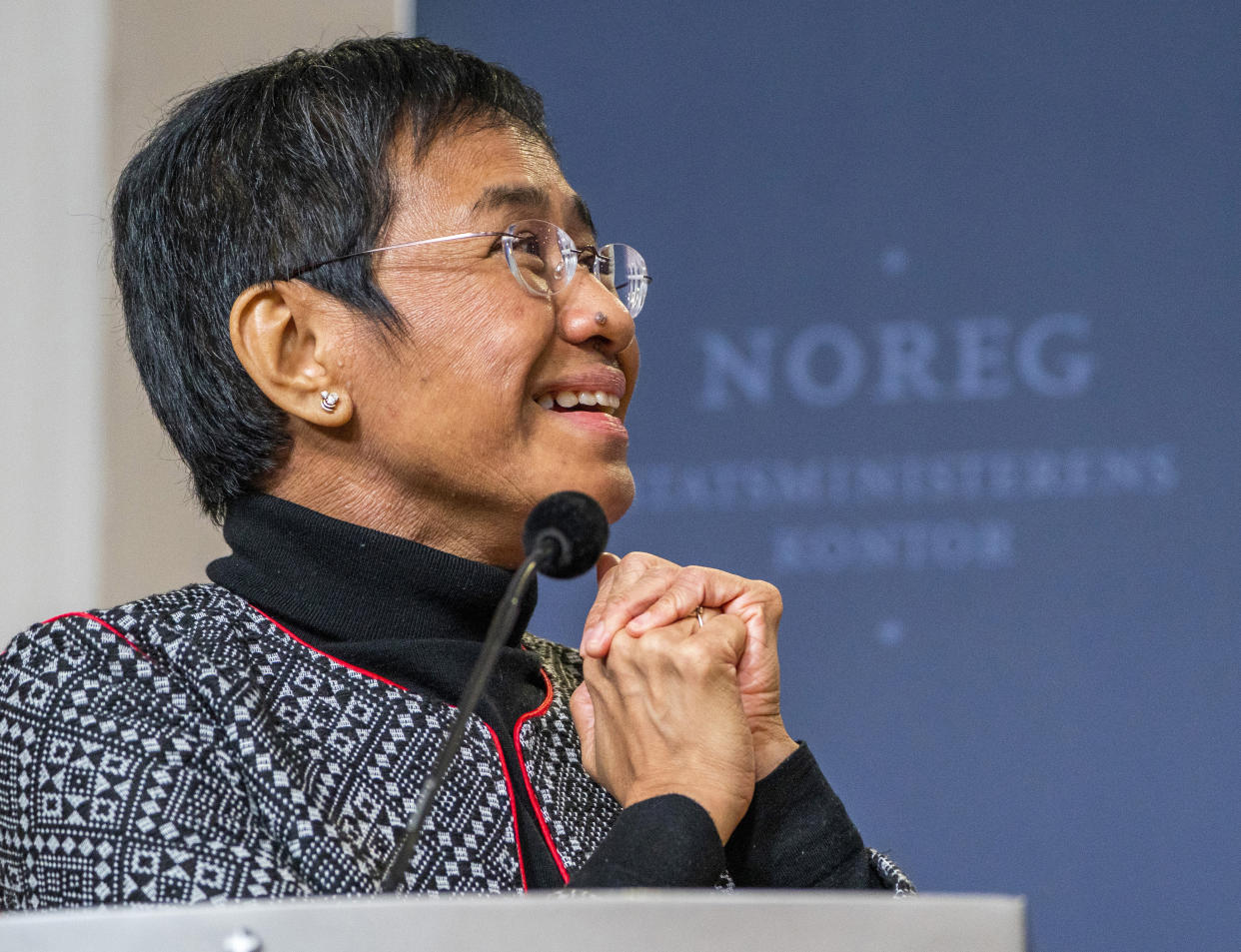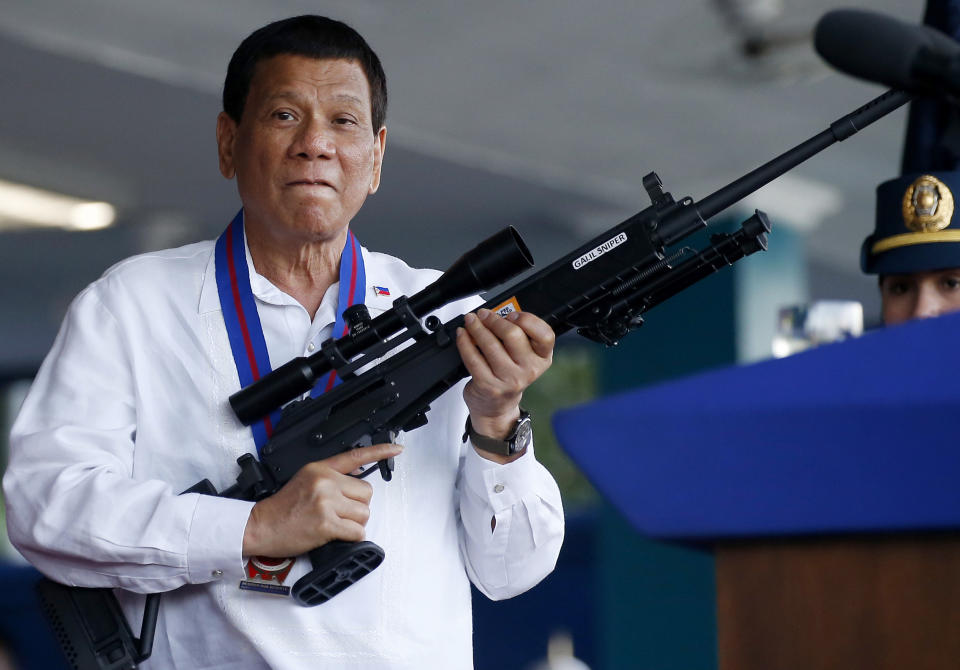Nobel Laureate Ressa Vows to Fight on as Philippines Orders News Outlet Rappler to Shut Down

Nobel Peace Prize laureate Maria Ressa attends a news conference in Oslo, on December 11, 2021. Credit - Hakon Mosvold Larsen/NTB scanpix via AP
Philippine authorities on Tuesday affirmed a 2018 order to shut down Rappler, the news website co-founded by Nobel Peace Prize laureate Maria Ressa.
The media outlet had invited the wrath of President Rodrigo Duterte for its reports on his notorious “drug war,” which led to some 7,000 deaths. The Philippines Securities and Exchange Commission (SEC) issued the ruling just two days before Duterte leaves office and late dictator’s son Ferdinand “Bongbong” Marcos Jr. takes over.
Ressa, who co-founded the site in 2012 and was named TIME’s Person of the Year in 2018, told reporters Wednesday that Rappler would continue doing “business as usual.” A day before, during a speech in the East-West Center in Honolulu, she said: “Part of the reason I didn’t have much sleep last night is because we essentially got a shutdown order.”
Read more: The Killing Time: Inside Philippine President Rodrigo Duterte’s War on Drugs
Legal counsel Francis Lim said they will challenge the order, but added the organization will comply with the court verdict: “It’s not the end of the world for us—there is still a very long process to go.”
Other news websites critical of the Duterte government were also ordered blocked last week for supposed links to terrorists.
The SEC in a statement says the ruling “merely puts in effect” the decision to revoke the operating license of Rappler, Inc. and Rappler Holdings Corporation over alleged violation of foreign ownership laws. The regulator accuses Rappler of allowing Omidyar Network—a foreign investment company of billionaire eBay founder Pierre Omidyar—to hold Philippine Depositary Receipts (PDRs) granting them control over the news company.

Omidyar donated the PDRs to Rappler in February 2018 to mitigate the SEC’s basis for the ruling.
The order is the latest in a series of clampdowns on the media in the Philippines since Duterte became president in 2016. In the first year of the COVID-19 pandemic, a Duterte-allied Congress revoked the broadcasting license of top local TV network ABS-CBN, which had also reported heavily on Duterte’s drug war. Some 11,000 people lost their jobs as a result.
Read more: In Manila, death comes by night
Under Duterte, press freedom in the Southeast Asian nation of 110 million has backslided. The Philippines currently ranks 147th out of 180 countries in the Reporters Without Borders’ press freedom index, as a result of the “government’s targeted attacks and constant harassment,” according to the organization.
The National Union of Journalists of the Philippines voiced its support for Ressa, saying the Duterte administration has used lawsuits and regulations to “muzzle the press.”
Read more: Why Maria Ressa’s Nobel Peace Prize Win Came at a Crucial Time for Journalists in the Philippines
Ressa herself faces at least seven criminal and civil cases in relation to Rappler. She was convicted of libel, but is out on bail pending appeal.
She won the 2021 Nobel Prize alongside Russian journalist Dmitry Muratov for her efforts to safeguard freedom of expression in the Philippines.

 Yahoo Movies
Yahoo Movies 
